The Promise of Playful Parenting: Islamic Teachings Ihsan
Recently, the Global Day of Parents was celebrated worldwide on June 1st. This United Nations observance honors parents and their dedication to their children. Each year, a theme is chosen for the Global Day of Parents, and for 2024, it is ‘The Promise of Playful Parenting.’
We all know the saying, "All work and no play makes Jack a dull boy." However, today's tech-driven world, while offering convenience, can come at the expense of human connection and emotional well-being. Children have less time for physical play due to the allure of digital entertainment. Free time often involves watching TV or playing video games on various devices. Rarely do we see children playing with traditional toys or exploring in parks. Parents, too, are often glued to their social media, unintentionally discouraging physical play.
Beyond granting permission for play, active parental participation is the key. Play is a cornerstone of a child's life, and parents hold a unique position within it. Entering their child's world of play is crucial for their development.
My Journey with Playtime
When I began to research the Islamic perspective on play, I was amazed to see that it was encouraged the same way experts talk about it. Becoming a mother transformed my understanding of play. Before, I saw it as a simple way to pass time. Now, I recognize it as the cornerstone of early childhood development.
This shift wasn't just personal; Islamic teachings on play resonated deeply. While this aspect may not be commonly discussed in our communities, there are actual narrations that emphasize its importance .Inspired by these discoveries and my own experiences, I'm eager to share the lessons I learned about the power of playtime.
My husband, a busy Director of Sales, prioritizes quality time with our children (a 7-year-old son and a 5-year-old daughter). Beyond family outings and dinners, he actively engages in their playtime. Each night, he captivates them with original stories woven on the spot, sometimes ending with cliffhangers like, "Time for sleep now, little ones! Part two tomorrow!" Although not a master artist, he indulges in drawing and painting with our daughter. Recently they made an imaginary world of unicorns, it was a master piece. He builds and elaborate LEGO creations with our son, a shared activity they both cherish. He even joins in games of peek-a-boo, hiding in surprisingly small spaces like under the study table and cabinets!
Pillow fights were once my nemesis – the messy aftermath! Now, I find myself joining the playful chaos. Every weekend, they pack their shovels, toy tractors, and dinosaurs for a trip to the nearby park, where he loses himself in their imaginative world for hours, only coming back when it's time to head home. Remarkably, he continues going to the park and play with them for hours even during Ramadan, while fasting.
When I see my husband playing with our children, it's not just a father-child interaction; it's a playground for three kids at heart. He seems to reconnect with his own childhood during these precious moments.
‘Play’ not just fun – it's fundamental to our child's development
Play may seem like it’s all about having fun, but it’s much more than that. It’s about learning and building essential life skills, from problem-solving to expressing ideas and strengthening family bonds. As our child's first teacher and playmate, we help them make sense of the world around them through play. While they're having fun, they’re also developing motor, cognitive, social, and emotional skills. But the power of play extends beyond early learning. It plays a crucial role in building our child’s mental health.
The Prophet (P.B.U.H) said: “The child’s playfulness in his childhood causes his intellect to strengthen in his adult age.”The Prophet (P.B.U.H) is known to say, “One who has a child with him has to treat him like a child”.2
Aisha (RA) reported: I used to play with dolls in the presence of the Prophet (P.B.U.H) and my girlfriends would play with me. When the Prophet (P.B.U.H) entered, they would hide themselves but he would call them to join me and play with me.
Playtime Tightens Family Bonds
Sharing joyful moments of fun and learning brings children and parents closer together. As our little one's first playmate, we can provide opportunities for learning and connection right at home. When we play together, we see the world from our child's perspective. By giving our child love, comfort, and attention during play, we lay the foundation for their emotional and social development, supporting their mental health and future well-being.
Play also strengthens the relationship of the child with the parents, and it has a fundamental function in the loyalty and sincerity of their relationship, being one of the necessary features in the parent - child relationship. Buying various toys which are sophisticated and expensive does not bring about a child’s consent in his relationship with his parents. He only wishes that his parents understand him and his world and participate in it.
Below mentioned hadiths clearly indicate that our beloved Prophet (P.B.U.H) used to actively play with his daughter and grandsons.
Kanz al-Ummal, narrating from Anas, who said: “The Messenger of Allah was playing with Zainab bint Um Salamah [his step-daughter] and he repeatedly said: “O little Zainab! O little Zainab.”
“The Prophet (P.B.U.H) said to the two [Hasan and Husayn] (a.s.): “Stand up and wrestle each other.” They stood up to wrestle when Fatimah (a.s.) who had gone out for some needs had come back home and heard the Prophet (s.a.w.) saying: “Again, O Hasan! Take Husayn firmly and knock him down!”So she said to her father: “O father, what a wonder! Do you encourage one against the other? Do you encourage the elder against the younger?” Then he (s.a.w.) said to her: “O daughter! Are you not happy that I say: “O Hasan! Take Husayn firmly and knock him down,” while my beloved Gabriel is saying: “O Husayn! Take Hasan firmly and knock him down?”
By prioritizing playfulness and lighthearted interactions with children, the Prophet (pbuh) provided a model for creating a nurturing and supportive family environment. Play allows children to feel loved, valued, and secure, fostering a strong and positive family bond.
Playtime: An Antidote to Stress
Playing together is a powerful tool for reducing stress, not just for our children, but for ourselves as well! Shared laughter and joyful moments trigger the release of endorphins, hormones that promote a sense of well-being. Even brief periods of playtime can strengthen our bond with our child and offer a welcome break from daily pressures. Research suggests that playtime can act as a buffer against the negative effects of chronic stress in children. While prolonged stress can impact a child's physical and mental health, playful interactions and supportive adult relationships can create a shield of resilience.
Fada’il al-Sahabah, narrating from Abu Hurayrah who said: “I saw the Prophet (P.B.U.H) holding the hands of Husayn ibn ‘Ali and was putting his feet on his own feet and saying: “Come up, O small eyed! Come up, O small eyed!”
Narrated Aisha (RA) When the Messenger of Allah (peace be upon him) arrived after the expedition to Tabuk or Khaybar (the narrator is doubtful), the draught raised an end of a curtain which was hung in front of her store-room, revealing some dolls which belonged to her. He asked: What is this? She replied: My dolls. Among them he saw a horse with wings made of rags, and asked: What is this I see among them? She replied: A horse. He asked: What is this that it has on it? She replied: Two wings. He asked: A horse with two wings? She replied: Have you not heard that Solomon had horses with wings? She said: Thereupon the Messenger of Allah (peace be upon him) laughed so heartily that I could see his molar teeth.
Both above hadiths depict that Prophet (PBUH) actively engaging with children in playful activities. The Prophet's (PBUH) playful actions, like asking Aisha (RA) about her winged horse toy, create a lighthearted and playful atmosphere. This can help alleviate stress and promote positive emotions. By showcasing the importance of play and creating a joyful environment, these hadiths offer valuable lessons on how playful interactions can contribute to reducing stress.
The Power of Play in Healing
When children deal with complex emotions, it often shows up in their play. Giving them space to play allows them to work through feelings like pain, fear, or loss while still acting like a child. Play provides a way for them to express struggles which they can’t yet fully explain in words.
Anas ibn Malik reported: The Messenger of Allah, peace and blessings be upon him, was the best of people in character. I had a brother who was called Abu ‘Umayr. When the Prophet would come and see him, he said, “What has the little sparrow done?” And he would play with him.
When the sparrow died, the Prophet, peace be upon him, sat with the boy and comforted him as he cried.
The above hadiths illustrates the Prophet (P.B.U.H) compassionate nature. The Prophet, a leader with immense responsibility, would playfully engage with Abu Umayr. This act highlights the importance of play in a child's life.
Play provides a safe space for children to express difficult emotions. Through playful interactions, the Prophet (P.B.U.H) might have been helping Abu Umayr develop social skills, explore his imagination, and even process complex emotions. In essence, this hadith serves as a beautiful reminder of the power of play in a child's emotional well-being and the importance of acknowledging and supporting a child's feelings, even during difficult times.
Confidence Building through Playtime
Solving problems and coming up with creative solutions during a game or puzzle gives children a sense of accomplishment and boosts their confidence level. When we take time to play with our child, they learn that they are valued. It’s important to invest by giving our full attention and quality time during play. Since parents are the most important persons for the child, playing with them increases their self esteem. It produces the feeling of self worthiness and self-motivation.
Ibn Abbas, may Allah be pleased with him, reported that the Prophet Muhammad, peace be upon him, once came out carrying Hasan Ibn Ali on his shoulder and a man who saw them said, “Oh boy, what an excellent mount you are riding.” The Prophet, peace be upon him, said, “And an excellent rider is he!”10
The Prophet, peace be upon him, not only allowed himself to be his grandchild’s make-believe mount, but also praised his riding skills. His aim was undoubtedly to make him feel comfortable and happy. Likewise, by showing interest in our child’s play, we can boost their confidence and bring them joy.
Conclusion
In today's fast-paced world, the importance of play can easily be overlooked. However, as we've explored, Islamic teachings and the Prophet (peace be upon him) own example highlight the profound impact of playtime on a child's development. From fostering intellectual growth and social skills to building a strong family bond and promoting emotional well-being, play is more than just fun – it's essential.
Let's reclaim the joy of playful parenting. Put down the phones, step away from the screens, and enter your child's world of imagination.
Remember, the most precious toys a child can have are their parents' time, attention, and love. Let's unlock the power of play and embrace the beautiful journey of nurturing happy, healthy, and well-rounded kids.
May Allah provide us with boundless opportunities to play and toughen the bonds with our little ones. Ameen.
References:
1. Source: Kanz al-Ummal, vol. 11, p. 91, hadith. 30747
2. Source: Behar al-Anwar, Vol. 35, P.350
3. Source: Ṣaḥīḥ al-Bukhārī 6130, Book 78, Hadith 157
4. Source: Kanz al-Ummal, vol. 7, p. 140, hadith. 18403
5. Source: al-Amali, by al-Saduq, p. 530, h. 717
6. Source: Fadda’il al-Sahabah by Ibn Hanbal, vol. 2, p. 787, hadith. 1405.
7. Source: Sunan Abi Dawud 4932, Book 43, Hadith 160
8. Source: Ṣaḥīḥ al-Bukhārī 5778, Ṣaḥīḥ Muslim 2150.
9. Source: Sunan Abi Dawud 4969, Book 43, Hadith 197
10. Source: Sunan Ibn Majah, Book of Manners, Hadith 3670
About the author
Alima Ahmad she is a published author of two children’s books ‘Islamic Quiz for Children’ by IBS (Delhi) and ‘Colours of My Dua’ by IIPH (Riyadh). Additionally, she is a professional social worker with 15 years of experience. She has authored many articles on issues related to society in light of Islamic teachings and scientific perspective and many of these pieces have been successfully published on platforms like Hiba (Pakistan), Aaila (London), Times of India (Delhi) etc.
Disclaimer
The views expressed in this article are the author’s own and do not necessarily mirror Islamonweb’s editorial stance.

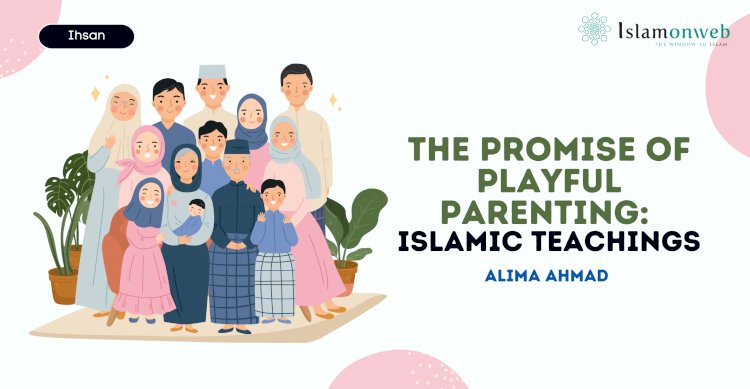



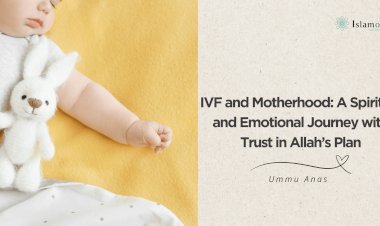
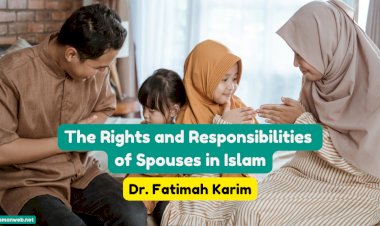
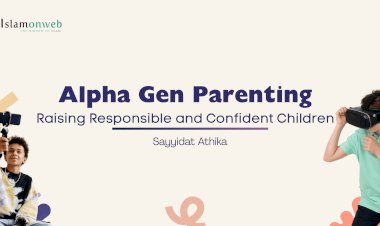
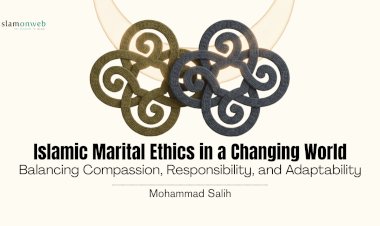

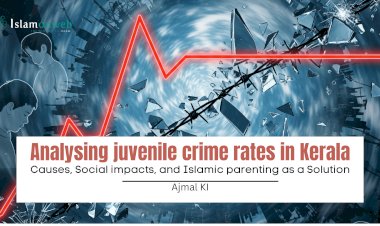














Leave A Comment